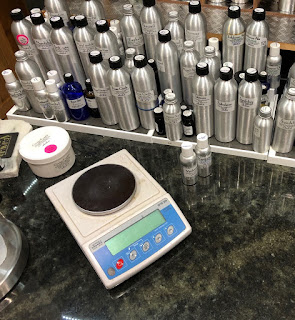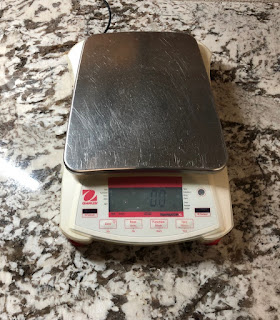 |
| Pell Wall Blending Bench |
The industry as a whole tends to work by weight, so if you buy pre-diluted materials they will most likely be diluted on a weight for weight (w/w) basis. Also all the IFRA regulations that you will need to comply with if you wish to sell your fragrances are expressed in terms of w/w proportions.
 |
| Pell Wall Manufacturing Bench |
1) Buy the most accurate scale you can afford. The cost is driven mainly by the accuracy, less by the capacity and for perfumery work you really need to get down to 0.001g accuracy, 0.01g will do if necessary but I really wouldn’t compromise further - better to save up a bit longer.
2) Many scales have an auto-correct function designed to prevent drafts, dust and so on from disturbing the reading. The trouble with these is that in perfumery you are often trying to deal with very tiny additions and the autocorrect software will often wipe them out altogether. So look for a scale that has a minimal autocorrect: these will often come with draft shields.
3) A repeatable tare function is essential.
4) Perfume making often takes a long time and I find that the phone rings or the doorbell goes in the middle of making a blend nearly every time I start! So battery operated scales that automatically switch themselves off to save power are a very bad idea: get scales with a mains option that don’t auto-off when plugged in.
The type we use at Pell Wall for blending is from Radwag, and we use one from Ohaus for manufacturing, plus a big Adam Warrior for weighing large drums of material, but there are plenty of other good manufacturers.

No comments:
Post a Comment